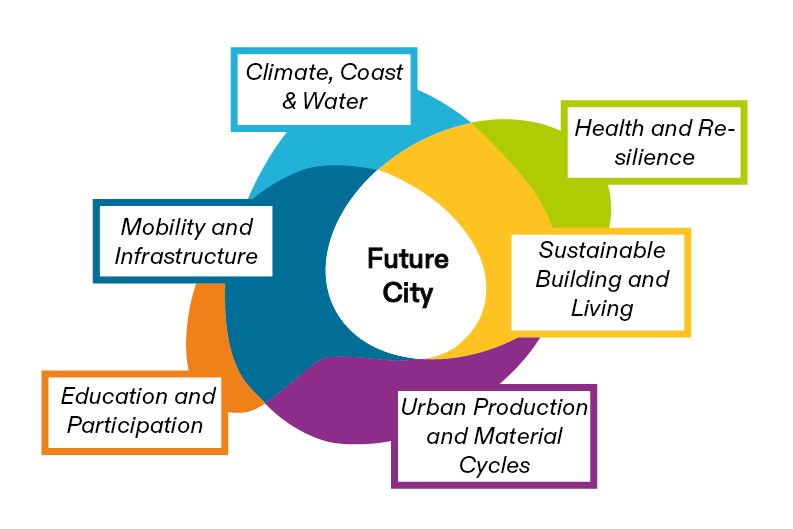

According to the UN1, the world population is expected to rise to around 10.3 billion people by 2080. By 2050, more than two-thirds of the global population will be living in cities or urban regions. Forecasts therefore suggest that in the next 30 years, around 2.5 billion more people will move to or be born in cities2. To address the challenges of sustainable urban development – both local and global – TU Braunschweig established City of the Future as one of four research priorities in 2014.
In response to the complexity of sustainable (urban) development in both urban and rural areas—faced with increasing urbanization, resource depletion, and climate change—our research focus relies on inter- and transdisciplinary collaborations. What sets us apart from other research alliances is our cross-university approach. All faculties of TU Braunschweig are involved in City of the Future projects. Our research aims at holistically sustainable solutions, primarily oriented toward the realities of life in European cities, while also taking into account the changing needs of urban and rural populations worldwide.

The goal is to research and fully understand solutions for efficient, environmentally friendly, healthy, social, and green cities and urban regions—in all their depth: from architectural, historical, literary, philosophical, social, participatory, ecological, and engineering perspectives. In doing so, we actively seek collaboration with partners from cities and municipalities, regional authorities, industry, and NGOs.
We conduct research and collaborate in an agile manner, enabling us to respond to questions raised by society while also anticipating future challenges. The following focus topics, shown in the graphic below, are currently being addressed through inter- and transdisciplinary cooperation within the research focus.
1World Population Prospects 2024: Summary of Results | UN Population Division
2United Nations Prognosis
